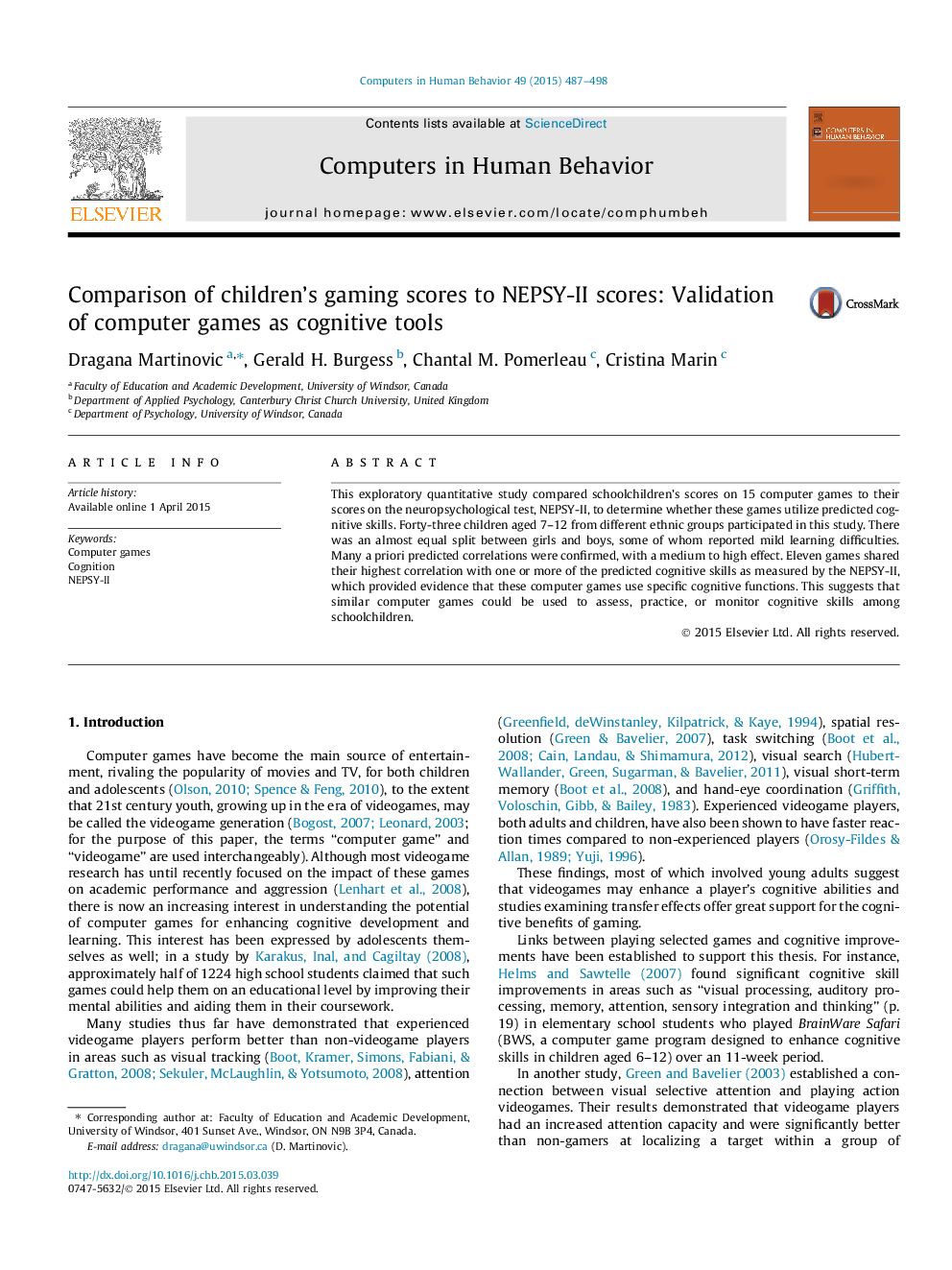| Article ID | Journal | Published Year | Pages | File Type |
|---|---|---|---|---|
| 350347 | Computers in Human Behavior | 2015 | 12 Pages |
•For 11/15 games the children’s game and NEPSY-II performances significantly correlated.•Many games predicted to use cognitive skills, correlated with right NEPSY-II measures.•Additional skills also correlated with games, emphasizing the complexity of game play.•Analysis confirmed at least one cognitive category for each game, except memory.•Similar games could be used to practice or monitor cognition of schoolchildren.
This exploratory quantitative study compared schoolchildren’s scores on 15 computer games to their scores on the neuropsychological test, NEPSY-II, to determine whether these games utilize predicted cognitive skills. Forty-three children aged 7–12 from different ethnic groups participated in this study. There was an almost equal split between girls and boys, some of whom reported mild learning difficulties. Many a priori predicted correlations were confirmed, with a medium to high effect. Eleven games shared their highest correlation with one or more of the predicted cognitive skills as measured by the NEPSY-II, which provided evidence that these computer games use specific cognitive functions. This suggests that similar computer games could be used to assess, practice, or monitor cognitive skills among schoolchildren.
